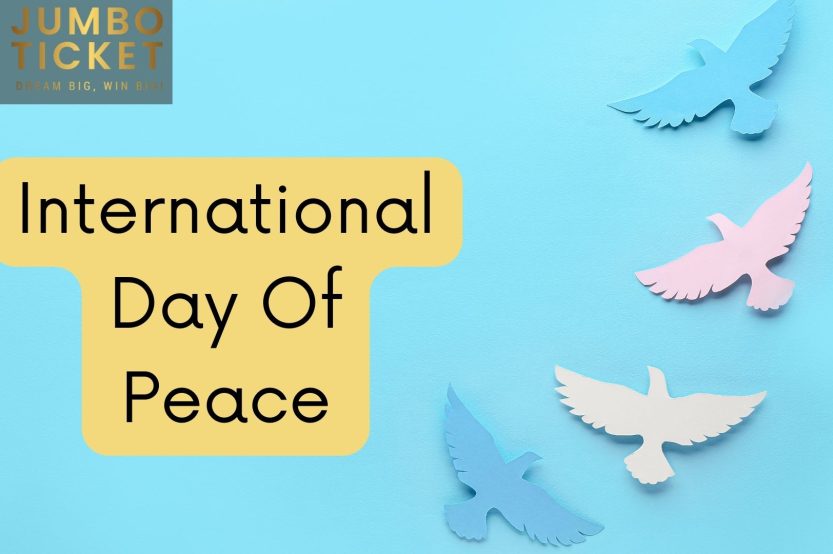The United Nations General Assembly has announced a common date for all nations and people to mark the day since 1982. This year, we celebrate the International Day Of Peace on September 21st.
What is the International Day Of Peace?
International Day of Peace is a United Nations observance. It’s a day for people around the world to celebrate peace, promote peace and learn about it.
In 1982, the General Assembly of the United Nations established this annual event to encourage everyone to take small steps toward reducing violence and promoting human dignity. In addition to commemorating those who died in World War II, September 21st symbolizes hope for peace in future generations.
History of International Day Of Peace
The UN has been marking the day since 1982. The United Nations General Assembly officially declared it a “Day of Peace” on 1st September 1986.
The first official celebration took place in 1981 at United Nations Headquarters in New York City. Secretary-General Javier Perez de Cuellar presided over an assembly of world leaders and representatives from around the globe. Mikhail Gorbachev (Soviet Union), Helmut Kohl (Germany), Ronald Reagan (USA), Lech Walesa (Poland), Carl Gustaf Emil Mannerheim (Finland), and many others.
On this day, Mahatma Gandhi would have celebrated his birthday. He chose this date for his fast unto death during India’s struggle for independence from British rule; however, some scholars argue that this does not mean Gandhi started such an idea but rather someone else did before him!
The Theme of this year’s International Day Of Peace
The theme for this year’s International Day Of Peace is “Together for Peace: Respect, Safety, and Dignity for All”. It’s inspired by the 2030 Agenda for Sustainable Development and the Sustainable Development Goals. As well as the United Nations Secretary-General’s Agenda for Peace.
This year’s theme was chosen through a voting process where you can vote on your favorite one out of three options: “Respect,” “Safety,” or “Dignity”. The United Nations General Assembly has announced a standard date for all nations and people to mark the day since 1982.
The day celebrates the signing of the UN Charter on the third Friday of September each year.
United Nations Resolution 36/67
The United Nations General Assembly adopted Resolution 36/67 on December 10, 1981. It established the International Day of Peace and was the first resolution to recognize the importance of peace education. The text also requested the Member States to promote peace through education and training. As well as by raising public awareness about current issues related to international peace and security.
The resolution was adopted by consensus among all UN member states. Except for Iraq which abstained from voting because they did not want it to be a holiday at all. They were, however, convinced that other countries had a good idea. As a result, they voted for it after being convinced by their neighbors, such as Syria, who initially voted against it. But changed their mind due to pressure from other nations who supported its establishment (e.g., Canada).
Conclusion
There may be some genuine advantages to being nameless or at the very least some anonymity and peace. This is true even of those whose transgressions haven’t aroused people’s curiosity worldwide. The legal limits established by each country have a significant impact on your ability to keep your privacy after winning the lottery. Everyone needs a piece of the lotto money you won, including family and friends. Jumbo Ticket steps in at this point to protect your anonymity even after winning the jackpot. You can now relax and spend some peaceful time with your loved ones while getting your crypto winnings.
The theme of this year’s International Day Of Peace is “Peace and Non-Violence Are Opportunities, Not Victims”. It is an opportunity to focus on peace, harmony, and non-violence in all aspects of life. We can do this by working together as individuals and as communities. To create a peaceful world through positive actions towards others with respect for diversity.
Read more:

